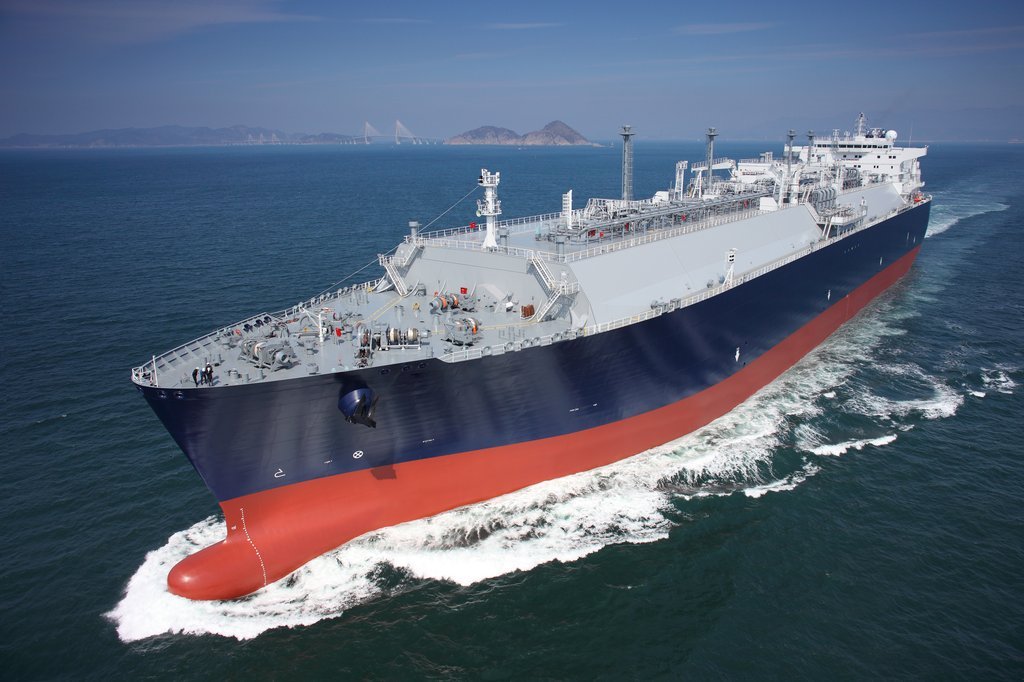 |
This file photo, provided by Samsung Heavy Industries Co. on Dec. 21, 2020 shows a liquefied natural gas carrier built by the shipbuilder. (Samsung Heavy Industries Co.) |
South Korean shipbuilders, led by top player Hyundai Heavy Industries Co., are expected to undergo a temporary shortage of order backlogs in the second half of the year due to a decline in new orders last year, an industry watcher said Tuesday.
"A temporary shortage of work is predicted to take place in the second half of the year, as new orders of ships last year, which are slated to be delivered by 2022, were very deficient, " Yang Jong-seo, a researcher at the Korea Eximbank Overseas Economic Research Institute, said by phone.
A new ship is usually completed two years after an order, he said, adding the construction of ships to be delivered by 2022 will start during the second half of this year.
In addition, a sharp rise in local shipbuilders' new orders in the October-December period will not make up for the decline in order backlogs in the second half of this year, as most of them will be completed by 2023, Yang said.
Local shipbuilders' order backlogs stood at 22.16 million compensated gross tons (CGTs) last year, down 5 percent, or 1.09 million CGTs, from a year ago, according to data provided by global market researcher Clarkson Research Service.
Global new orders of ships reached 19.2 million CGTs last year, down 34 percent compared with 29.1 million CGTs in 2019.
New orders of ships won by South Korean shipbuilders stood at 8.2 million CGTs last year, down 16.5 percent from 9.8 million CGTs in 2019.
Global new orders are expected to come to 30 million CGTs this year, up 57 percent from last year, due to soaring demand for new ships to replace old ships, as toughed environmental regulations are predicted to take effect in 2023, Yang said in his report released in late January.
On Nov. 18, 2020, the International Maritime Organization (IMO) Marine Environment Protection Committee (MEPC) approved new regulations to cut ship emissions.
If the regulations are adopted by the committee in June, old ships built before 2014 should limit their speed in accordance with their fuel efficiency starting in 2023.
The IMO aims to reduce the emission level of ships by 30 percent by 2025 and by 70 percent by 2050 compared with 2008, lowering the sulfur cap on fuel content from 3.5 percent to 0.5 percent from last year.
"The lower order backlogs are temporary ahead of a boom in the industry so local shipbuilders are required to prepare for reasonable measures," Yang said in his report. (Yonhap)








